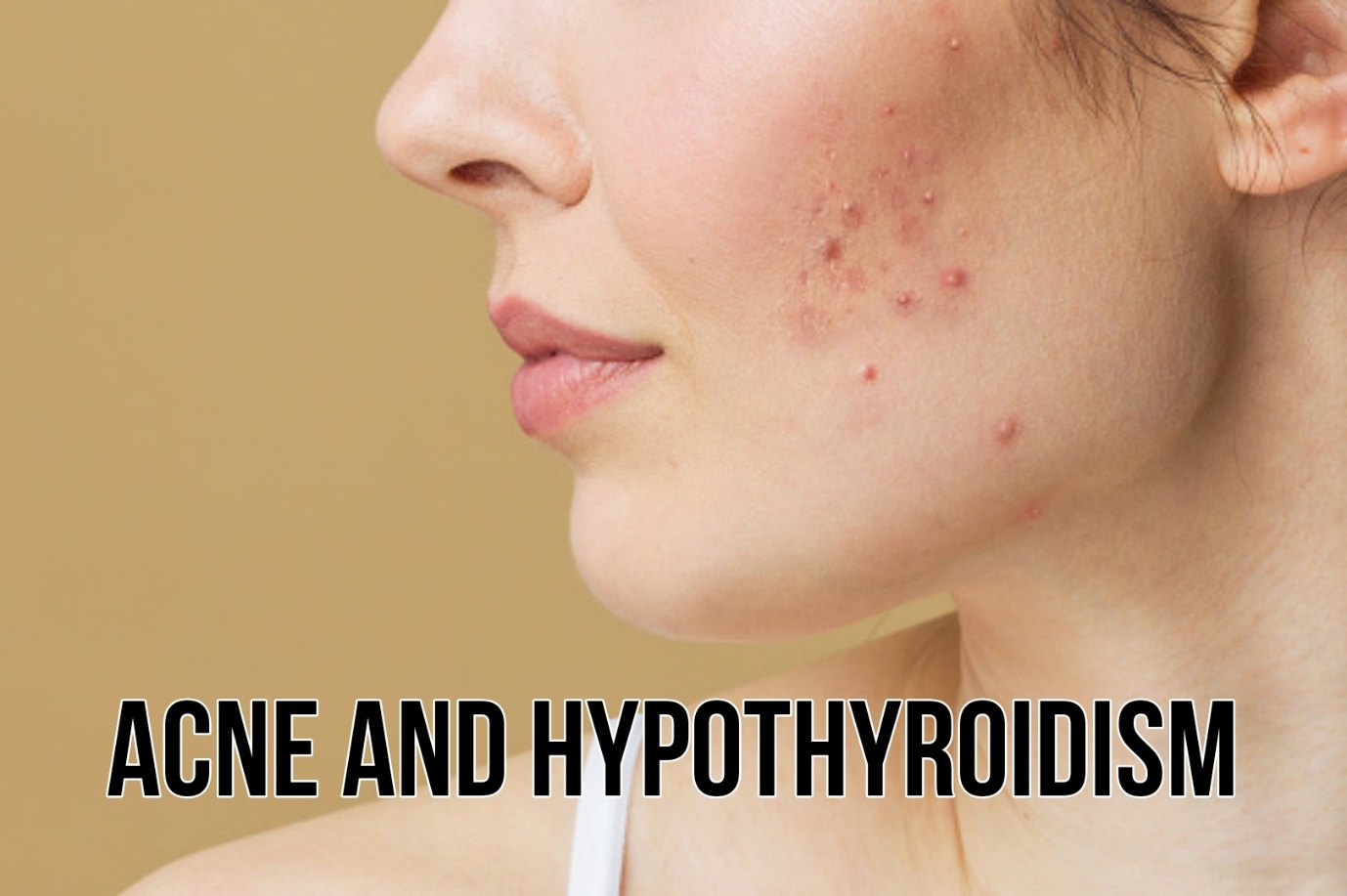3 reasons – Why hypothyroidism cause acne
There is a connection between acne and hypothyroidism and also it’s scientifically proven. Most symptoms disappear when thyroid levels are brought back into balance, but some symptoms, such as acne, may persist. 5-10% of the population has hypothyroidism and about 20 million Americans have some form of thyroid disease. An estimated 60% of people with thyroid disease goes undiagnosed.
Well, there are a few things that could be the cause of acne, but I have a question. Could thyroid problems (hypothyroidism) be the cause? Many things however cause acne, but the main cause of acne after puberty is hormonal imbalance. Since the thyroid is the captain of the body’s hormonal crew, many people have linked the thyroid to acne. That’s we they believe in the connection between acne and hypothyroidism.
Let’s dig into the article and find out the relationship between acne and hypothyroidism.
What is acne?
Mainly, acne occurs when your skin’s hair follicles (also called pores) become blocked with oil and dead skin cells. Primarily, it starts as a microcomedone – the blockage is so small that you can’t see it. Blackheads are open comedones, while whiteheads are closed comedones, the smallest form of pimples visible to the naked eye.
As comedones grow in size, usually they rupture the walls of hair follicles, normally causing redness and inflammation. These inflamed comedones are commonly called acne. Deeper, more irritating clogged pores, however, can also develop:
- Painful deep nodules (hard nodules)
- Cysts (pus-filled nodules)
Nodular and cystic acne are the worst and leave the deepest scars. Principally, the earlier you start treatment, the lower the risk of these problems.
External causes of acne
These include:
- Medicines such as lithium, steroids, ds, and anticonvulsants.
- Excessive exposure to sunlight as this can oxidize the oil and clog pores.
- Endocrine disorders such as polycystic ovary syndrome (PCOS) and sometimes pregnancy.
- Stress and lack of sleep.
- Genetics.
- Skincare: Just as what you put in your body surely affects your internal health and weight, so does what you put on your skin. Typically, you don’t need to use a lot of products to have perfect skin. But you should make sure that the products you use a well-made and suitable for your skin type. In most cases, acne can be completely cleared up with a prop skincare routine.
What is hypothyroidism?
Hypothyroidism is a condition merely in which there is a lack of thyroid hormones in the blood and slow metabolism. Commonly, it occurs when the thyroid gland does not produce enough thyroid hormones in the body. Ultimately, this slows down the metabolism and affects the whole body. When the thyroid level is too low then it is called myxedema and even it leads to
- Low body temperature.
- Anemia.
- heart failure.
- coma
What causes hypothyroidism?
Generally, hypothyroidism can have a primary or secondary cause. Besides, the main cause is a condition that directly affects the thyroid gland and also lowers the level of thyroid hormones. Though, the second cause is a malfunction of the pituitary gland, normally which means that it cannot send thyroid-stimulating hormone (TSH) to the thyroid to balance it. Other major causes of hypothyroidism usually may include:
- Thyroiditis (inflammation of the thyroid gland).
- Treatment of hyperthyroidism (radiation and surgical removal of the thyroid gland).
- Iodine deficiency (insufficient iodine is a mineral that the thyroid gland uses to make hormones in the body).
- Genetic conditions (medical conditions that run in families).
Acne and Hypothyroidism – Relation
Does Hypothyroidism cause acne?
Regardless, acne and hypothyroidism is correlated. Is it true? Largely, the thyroid gland is responsible for releasing hormones that functionally regulate metabolism. Merely, the way the body uses energy and yet regulates skin functions. Acne is not a common symptom of hypothyroidism.
Hypothyroidism cause acne – 3 reasons
Predominantly, acne is often a sign of an underlying problem on the body, rather than on the surface of the skin. Nevertheless, acne can be caused by bacteria, excess oil, dead skin cells, and inflamed pores further, by an internal imbalance.
No doubt hypothyroidism can cause facial acne in several ways. Let’s look at the top 3 reasons why hypothyroidism can cause acne.
Hormonal Imbalance
Hormones can typically cause acne, premenstrual syndrome, convulsions, and further skin problems. Entirely, hypothyroidism can cause skin problems because it can cause an imbalance in estrogen and progesterone levels in the thyroid. Ultimately this can lead to acne and oily skin.
Poor Gut Health
Hashimoto’s thyroiditis or hypothyroidism can cause gastrointestinal disorders. Such as leaky gut (IPI), irritable bowel syndrome (IBS), and small intestinal bacterial overgrowth (SIBO). An overpopulation of bacteria in the gut can verily stress the ecosystem and eventually cause acne. Probiotics can however help improve skin health and treat acne.
Cracked and Dry skin
74% of people with hypothyroidism usually report dry skin. Poor skin cell health due to low thyroid hormone levels can directly contribute to acne. If your skin is very dry, it may try to renew itself and produce excess oil, so you may have an oily T-zone.
Can thyroid medication cause acne?
Dr. Mikhail says thyroid medications usually don’t cause acne unless you’re allergic to an ingredient in them. Nonetheless, some acne medications can affect thyroid tests. e.g.:
- Retinoids: Some types of retinoids can truly cause thyroid-stimulating hormone (TSH) disorders.
- Isoprenoid: Oral isotretinoin is sometimes prescribed for severe acne. Consequently, this can lead to changes in thyroid function tests, such as elevated TSH and low levels of thyroid hormones T3 and T4.
Consult a Doctor for acne
Chiefly, an endocrinologist can help balance thyroid hormones importantly with other hormones that can cause acne. Gastrointestinal problems are common in hypothyroidism and are a sign of gut health problems. Hence, doctors can easily find out the main problem. Talk to your doctor about your acne condition.
Conclusion
To sum up acne and hypothyroidism, yes, thyroid conditions like hypothyroidism can typically contribute to acne.
Yet, the thyroid directly affects estrogen and progesterone. That’s why, an underactive thyroid can cause an imbalance and ultimately lead to hormonal acne.




